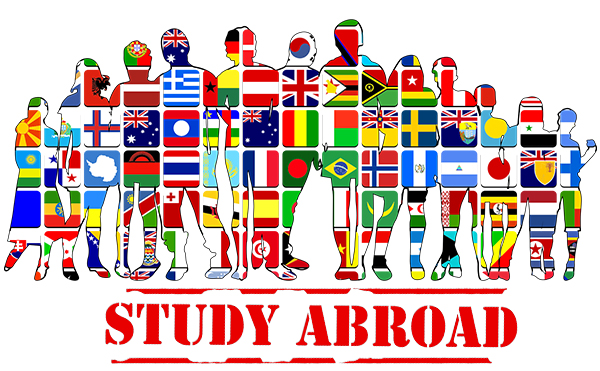- 77 West Wacker Dr, STE 4500, Chicago, IL 60601.
- 312-291- 4656
- 506, Peninsula Park, End of Veera Desai Road, Behind Hard Rock Café, Andheri West, Mumbai – 400 053. India
- +22 670 80 829 / 830
- info@kenilworthglobalconsulting.com
- Week Days: 09.00 to 18.00 Sunday: Closed
Kenilworth Global Consulting
partners with charities and non-profit clients
Tools include:
- SWOT (Strengths, Weaknesses, Opportunities and Threats)
- Critical path analysis (linking tasks together, in order)
- Stakeholder mapping (those interested/affected by the idea).
Planning for Projects
This stage also considers the who, why, when, where, how and what questions in more detail; looking at the tasks to be done, the people required, the way in which things will be done, and the time taken to do them. From this we work out the key project objectives, milestones and outcomes.
Some clients prefer using an action planning chart or Gantt chart to break down the project into its individual tasks, listing specific resources, issues and timeframes.


Other key documents are the
- Project budget to control the finances
- Risk analysis to think through potential issues that might arise before, during or after the project
Kenilworth advises and works with the client’s project team or key stakeholders to identify the key objectives, milestones and outcomes.
Fundraising for Projects
Kenilworth helps clients to identify different funding sources such as:
- Gifts and donations
- Grants
- Loan financing and equity capital
- Contracts
- Trading
Gifts and donations are generally solicited from Individuals, corporates, charitable trusts and foundations. In certain cases, these donations are given with a particular objective that the recipient organization has to meet like providing scholarships to students from certain socio economic backgrounds. If there are no conditions levied by the donors, non-profits have the freedom to use the funds for meeting their other philanthropic goals.
Before fundraising, we advise all our nonprofit clients to consider these questions:
- Is your fundraising effective and economic?
- Is your fundraising legal?
- Is your fundraising ethical?
Do you have policies for example on corporate donations?
Have you clearly laid out your objectives and details of funds usage? Do you have any back up plans if your fundraising campaign raises more or less than your target amount? What measures will you take to ensure the funds will be spent for the purpose for which it was given?
Grants
Typically, foundations or the public sector or charitable trusts give grant funding to deserving organizations and causes. More often, grant funders will consider only organizations that have a charitable or a nonprofit status. Grants usually look at key points such as:
- Certain outputs or outcomes
- Meeting agreed milestones
- Returning unused funds to the source of fund
- Reporting on the progress of the project or usage of funds.
Kenilworth Global Consulting works with Schools and Hospitals in different parts of the world to identify funding and implementation opportunities for organizations that serve their local communities through quality education and health services to the needy, deserving and underprivileged fellow citizens. We partner with nonprofit organizations to help them apply for USAID/ASHA grants. Our services include consulting, grant writing, implementing and evaluating the projects on client locations.


USAID’s Office of American Schools and Hospitals Abroad (USAID/ASHA) provides assistance to schools, libraries, and medical centers outside the United States that serve as study and demonstration centers for American ideas and practices. USAID/ASHA awards help cultivate positive relationships between citizens of the United States and other nations.
The Office of American Schools and Hospitals Abroad began in 1947 and was incorporated into USAID by the Foreign Assistance Act of 1961. Since its inception, USAID/ASHA has achieved a visible legacy by providing assistance to approximately 300 institutions globally and aiding in the development of innovative and state-of-the-art schools, libraries, and medical centers in more than 80 countries. USAID/ASHA’s record of contributing to and building connections with vibrant networks of civil society institutions extends through 26 U.S. Congresses and 18 presidential administrations. USAID/ASHA currently manages a worldwide portfolio of approximately 110 awards and is an invaluable complement to USAID’s wide-ranging development work.
USAID/ASHA directly contributes to U.S. foreign policy and public diplomacy objectives by fostering strong civil society institutions and excellence in higher education and innovation. The networks of educational and medical institutions supported by USAID/ASHA offer opportunities to access quality education and health services in areas of the world where often few or none exist. USAID/ASHA partners have educated successive generations of global citizens and leaders, deepening their understanding of American ideas and practices.
Source: USAID – ASHA.
Loan Financing and Equity Capital
Loan financing usually happens funds are borrowed and have to be paid back, usually with interest. Loan finance is potentially useful for a range of non –profits. They are a flexible form of funding that can be quicker and easier to secure than grant funding. Usually, loan financing requires assets to be offered as security.
Equity capital is provided by external investors in return for a permanent stake in the organization with the expectations that the organization will be successful in a few years and the investors will benefit from that success.
Contracts
In simple words, a contract is a formal agreement between two parties where they have agreed on the expectation that each of them have to meet and if any of those expectations are not met, they are covered both by the terms of the contract and by contract law. Often, non-profits enter into contracts with public sector to deliver specific services.


Trading
A lot of the nonprofits earn their income by selling their goods and services to their clientele. Depending on the country or state you live, charity and tax law implications should be considered if trading activity is significant and not related to primary purpose or objectives of the charity/non-profit organization.
Implementing Projects
A project can be implemented properly only when implementation is consistent with the project’s objectives; and a project is successful only after it has yielded its expected future benefits to a particular set of project beneficiaries. The range of skills associated with project management is broad, and may vary from sector to sector and from lifecycle phase to life-cycle phase. In general, however, project management functional skills include:
- Planning
- Communication
- Financial management
- Procurement
- Risk and schedule management
- Human resources management
- Execution
Prior to the project implementation, Kenilworth works with the clients to perform economic and financial analysis, technical analysis, institutional analysis, environmental analysis, and gender analysis must all be applied within a context of participation and feedback from project beneficiaries and stakeholders.
Monitoring and Evaluation of Projects:
Monitoring and evaluation (M&E) of development activities provide clients, funding agencies, government officials, development managers, and civil society with better means for learning from past experience, improving service delivery, planning and allocating resources and demonstrating results as part of accountability to key stakeholders.
- Performance indicators
- The logical framework approach
- Theory-based evaluation
- Formal surveys
- Rapid appraisal methods
- Participatory methods
- Public expenditure tracking surveys
- Cost-benefit and cost-effectiveness analysis
- Impact evaluation


